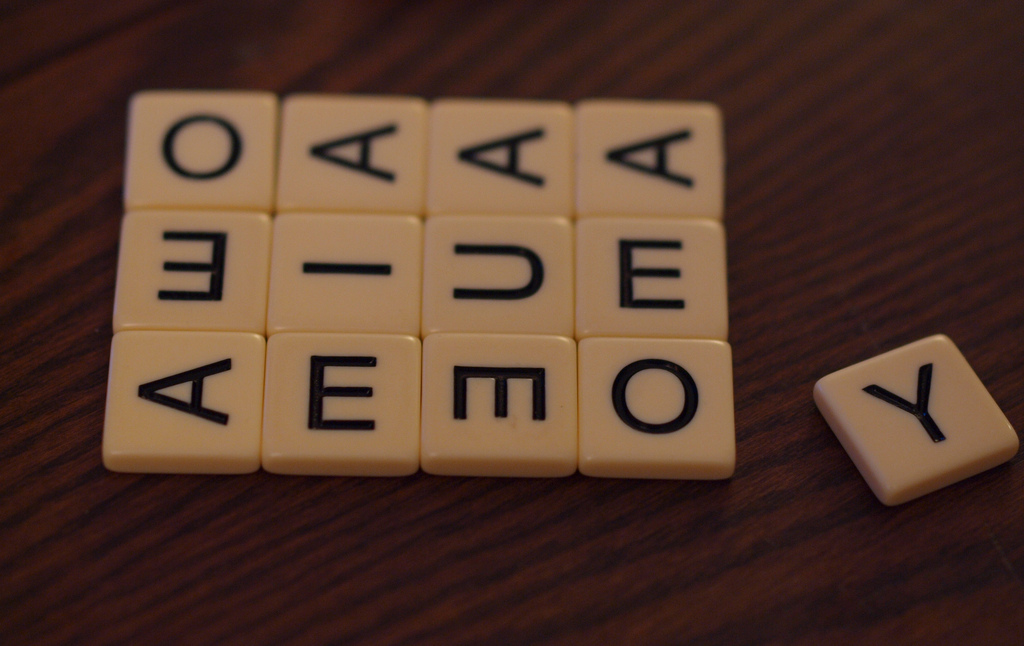
A, E, I, O, U… why? To look smarter and make your writing clearer, of course!
Photo by kumsval (Flickr)
There are plenty of words in the English language that sound the same but are spelled very differently, like “you’re” and “your” or “there” and “their.” But even trickier can be the ones that are almost spelled the same and almost sound the same — with some words, just one little vowel can make a big difference in meaning. Let’s take a look at a few examples that trip a lot of freelance writers up:
Affect/Effect
To “affect” something is to have an impact on it: Spraining my foot affected my ability to walk.
An “effect” is a change or situation that is the result of a cause: The sunny day really had an effect on his mood.
A general rule of thumb here is that “affect” is a verb, an action word (“A” for “action,” “A” for “affect”). “Effect” comes later in the alphabet — it’s what comes later, after the action happens.
Complement/Compliment
To “complement” something is to complete something, to add to it to make it better: That scarf really complements your dress.
A “compliment” is a kind remark: Mary made my day when she complimented my work on that project.
Ensure/Insure
To “ensure” something to make sure of it, to guarantee it: John camped out overnight to ensure that he’d get front-row tickets.
“Insure” actually comes from the same root word, but it commonly only refers to buying an insurance policy to protect our income: He had to pay more to insure his new car than his old clunker.
Farther/Further
This one’s a bit tricky, but the answer’s right there in those first three letters. “Farther” contains the word “far” — it refers to a measurable distance: At last night’s training session, Bob ran father than he ever had before.
“Further” refers to a metaphorical or non-specific distance — it says “more,” but not a measurable “more”: The police will need to look into the case further before they can name any suspects.
Stationary/Stationery
If you are still, you are “stationary”: She had to remain stationary while the guard frisked her for weapons.
If you need to write a letter, you’ll need some “stationery,” which refers to paper that you use to write letters or notes: I bought her some nice personalized stationery for her birthday.
Got any other examples of words that always make you second-guess yourself? Leave them in the comments and we’ll help clear up the confusion!
